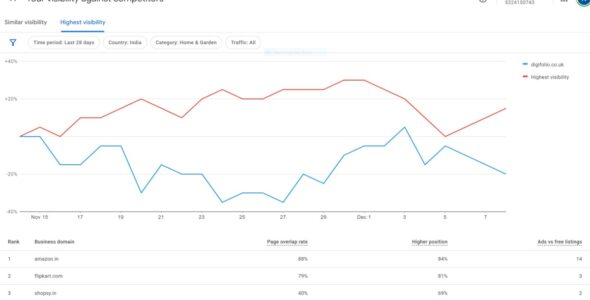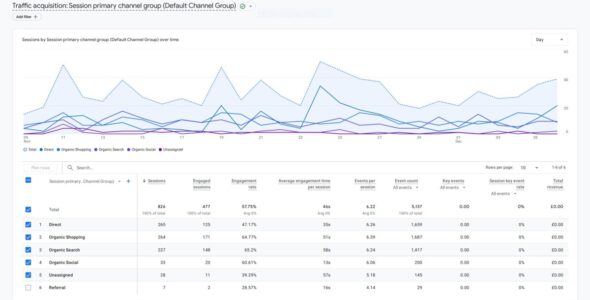The Role of Business Intelligence in Real Estate Decision-Making
In the fast-paced and competitive world of real estate, making informed decisions is essential for success. The real estate market is influenced by numerous factors, and understanding market trends, property values, and customer preferences is crucial for real estate professionals, investors, and developers. This is where Business Intelligence (BI) comes into play. BI leverages data and analytics to provide valuable insights, empowering decision-makers with the information they need to navigate the market strategically. In this blog post, we will explore the role of Business Intelligence in real estate decision-making and understand how it transforms the way the industry operates.

What is Business Intelligence in Real Estate?
Business Intelligence refers to the use of data analysis tools and techniques to gather, process, and present valuable insights from various sources of information. In the context of real estate, BI involves collecting and analyzing data related to property sales, market trends, demographic information, and economic indicators. This information is then used to make informed decisions, optimize operations, and gain a competitive edge in the market.
Key Benefits of Business Intelligence in Real Estate Decision-Making
1. Data-Driven Decisions: BI enables real estate professionals to base their decisions on concrete data rather than intuition or guesswork. Data analysis provides actionable insights, empowering decision-makers to make informed choices that align with market trends and customer demands.
2. Identifying Investment Opportunities: With BI tools, investors can identify potential investment opportunities based on historical market trends and predictive modeling. BI helps them understand which areas are likely to experience growth and which property types offer the best return on investment.
3. Competitive Analysis: BI allows real estate companies to conduct competitive analysis, enabling them to benchmark their performance against industry peers and identify areas for improvement.
4. Market Trends and Demographics: BI provides real-time access to market trends and demographic information. This data helps developers understand the preferences of their target audience and tailor their offerings accordingly.
5. Risk Mitigation: BI helps identify potential risks and vulnerabilities in real estate projects. This enables proactive measures to mitigate risks and ensure the success of the project.
6. Enhancing Customer Experience: BI allows real estate agents to better understand their customers, personalize their services, and provide a more satisfying customer experience.

Utilizing Business Intelligence in Real Estate
1. Data Collection and Integration: The foundation of any BI strategy is data collection. Real estate professionals must gather data from various sources, such as MLS (Multiple Listing Service) databases, property management systems, and economic indicators. Integration of data from different sources ensures a comprehensive view of the market.
2. Data Visualization: BI tools often come with data visualization features that convert complex data sets into easy-to-understand graphs, charts, and maps. Visual representation aids in identifying trends and patterns quickly.
3. Predictive Analytics: Advanced BI tools employ predictive analytics algorithms to forecast market trends and property valuations. By utilizing historical data, these tools can provide valuable insights into future market movements.
4. Market Segmentation: BI helps segment the market into different categories based on location, property type, buyer demographics, and more. This segmentation assists real estate professionals in targeting specific customer groups effectively.
5. Performance Tracking: BI dashboards and reports allow real estate professionals to monitor the performance of their listings, investments, and marketing efforts in real-time. This feedback loop facilitates continuous improvement.
Real-Life Examples of BI in Real Estate
1. Market Analysis: BI tools can analyze historical property sales data to determine market trends, identify potential investment hotspots, and forecast property prices.
2. Customer Segmentation: BI helps real estate companies segment their customers based on preferences, demographics, and buying behavior. This information helps agents provide personalized services to each customer.
3. Property Performance Tracking: BI allows developers and property managers to track the performance of their properties, including rental income, vacancy rates, and maintenance costs.
4. Competitor Analysis: BI tools provide insights into the performance of competitors, enabling companies to stay ahead in a competitive market.

Challenges and Considerations of BI in Real Estate
1. Data Quality: The success of BI in real estate relies on the quality of the data collected. Inaccurate or incomplete data can lead to misleading insights.
2. Integration of Data Sources: Integrating data from various sources can be challenging and may require specialized expertise.
3. Privacy and Security: Handling sensitive customer data requires strict security measures to protect privacy and comply with data protection regulations.
4. Data Literacy: Real estate professionals need to be data-literate to interpret and utilize BI insights effectively.
Conclusion
In the real estate industry, Business Intelligence plays a pivotal role in transforming decision-making. By leveraging data and analytics, BI empowers real estate professionals, investors, and developers with valuable insights to make informed choices, identify investment opportunities, and enhance the customer experience. BI enables market analysis, customer segmentation, competitor analysis, and property performance tracking, driving efficiency and competitiveness in the real estate market.
The integration of BI in real estate decision-making is no longer an option but a necessity for success in today’s rapidly evolving market. Embracing Business Intelligence as a strategic tool empowers real estate companies to stay ahead, optimize operations, and make data-driven decisions that will shape the future of the industry. As the real estate landscape continues to evolve, BI will remain a key enabler for staying competitive and achieving remarkable success in the dynamic world of real estate.





